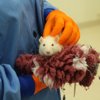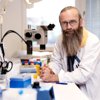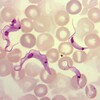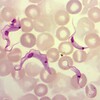-

New findings on the diseases that crushed Napoleon’s army
As if cold, starvation, and typhus weren’t enough. New research reveals that Napoleon’s defeated army also suffered from paratyphoid fever and relapsing fever during the retreat from Russia.
-

The top five most expensive drugs in 2025
New advanced therapeutic medicines are reaching the market, but their price tags remain exceptionally high. This year’s ranking of the most expensive drugs in the US reveals a common denominator: all are gene therapies administered as one-time treatments.
-

Who pays for Rebecca Doe – and all of us?
Anna Törner on how easily we get used to the idea that healthcare is free - when it really is about how and who pays for it
-

”The importance of stratification in a statistician’s August kitchen”
Ingrid Lönnstedt writes about an experiment of her own at home and about what lessons can be learned from it, in a science column.
-

Ingrid Lönnstedt: ”The confidence interval and its width”
Always keep an eye on the width of your and others’ confidence intervals, writes Ingrid Lönnstedt in a science column.
-

Samuel Lagercrantz: “Companies that do this successfully will take the lead”
The development of new medicines and medical technologies should not focus too narrowly on prolonging life. It is equally important to develop treatments that relieve pain or eliminate painful symptoms, writes Samuel Lagercrantz in an editorial.
-

Samuel Lagercrantz: ”Företagen som lyckas med det här tar tätpositionen”
Fokus för utveckling av nya läkemedel och ny medicinteknik bör inte för ensidigt ligga på att förlänga liv. Det är minst lika viktigt att forska fram behandlingar som lindrar smärta eller tar bort plågsamma symtom, skriver Samuel Lagercrantz i en ledare.
-

Total pipeline of pharmaceutical companies reaches a record high – 22,921 medicines are currently being developed
Despite the difficult economic times, pharmaceutical companies have never developed as many new drugs as now.
-

Läkemedelsföretagens totala pipeline rekordstor – 22 921 läkemedel utvecklas just nu
Bistra ekonomiska tider till trots. Läkemedelsföretagen har aldrig utvecklat så många nya läkemedel som nu.
-

Carl Borrebaeck – professor and serial entrepreneur with a taste for speed
Award-winning cancer researcher, the founder of many listed companies, and constantly in the academic and commercial spotlight for decades. However, Carl Borrebaeck, Professor of Immunotechnology at Lund, is not yet satisfied. “We have a new, potentially super exciting project in the pipeline,” he says.
-

From Valneva to the CEO position at NorthX – “I saw it as a great opportunity”
A new cell therapy for leukaemia, a vaccine in tablet form against cholera, and a proprietary mRNA line with the potential capacity to supply the entire Nordic region with vaccines during a future pandemic. These are some of the projects underway at NorthX Biologics – under the direction of new CEO Janet Hoogstraate.
-

Principerna som är vägledande vid djurförsök
Ett begrepp som består av tre R är vägledande för det statliga forskningsinstitutet Rise i Södertälje. Att försöksdjuren här har det bra är inte bara viktigt för deras egen skull utan även för att få trovärdiga resultat i studier på läkemedel.
-

Study: Chat GPT is more empathetic than doctors
The AI tool Chat GPT is not only more accurate when it comes to answering patient questions – the chatbot is also perceived as almost 10 times more empathetic than real doctors, a new study reveals.
-

Sigrid Therapeutics utser ny vetenskaplig rådgivare
Professorn Iain Chapple är Stockholmsbaserade Sigrid Therapeutics nya vetenskapliga rådgivare.
-

Conference on Alzheimer’s reveals several advances in the field
In Gothenburg, Sweden, researchers and pharmaceutical companies from all over the world gathered to discuss one specific issue – neurological diseases. Life Science Sweden has talked to some of those that attended the conference.
-

AI hjälper till att kartlägga biologiska processer
Forskare vid Göteborgs universitet har med hjälp av AI i detalj kartlagt på vilket sätt celler och partiklar rör sig i levande materia. Studien presenteras i det senaste numret av Nature Machine Intelligence.
-

Amorphous materials take centre stage when Orexo develops new formulations
Swift resolution but with maintained stability. Orexo’s new drug delivery platform tackles the problem of amorphous materials. “Our technology has the positive properties of the material, and it also cracks some of the problems,” says the company’s Research and Development Manager Robert Rönn.
-

Björn Arvidsson: “We need robust and recognized ecosystems for continued competitiveness”
“We have idea carriers and excellent innovation opportunities, and now we must invest in creating ecosystems that provide them with even better growth opportunities,” Björn Arvidsson writes in a column.
-

A growing industry in Denmark: “One new life science company a week”
The life science sector in eastern Denmark continues to grow in the number of employees, as well as the number of companies. An emerging problem is the shortage of labour, a new report reveals.
-

The first vaccine derived from cowpox
The British rural doctor could not forget the words of the peasant girl. Could that really be true? A couple of decades later, on 14 May 1796, he performed the world’s first smallpox vaccination, and a medical breakthrough had occurred.
-

Noxious parasite forms hybrids and deceives the immune system
The small parasite Trypanosoma cruzi has a nasty ability to cause serious illness. Researchers at the Karolinska Institutet have now mapped its ability to deceive the immune system by forming new variants that are mixtures of different strains.
-

Investments worth 40 billion in the Öresund region – “A huge investment wave”
A new report reveals that medical companies in the Oresund region are investing like never before.
-

Otrevlig parasit bildar hybrider och lurar immunförsvaret
Den lilla parasiten Trypanosoma cruzi har en otäck förmåga att orsaka allvarlig sjukdom. Nu har forskare vid Karolinska institutet kartlagt hur den lurar immunsystemet genom att bilda nya varianter som är blandningar av olika stammar.
-

Tom Britton: ”Nivån för flockimmunitet är lägre än vad vi trott”
Nya matematiska modeller pekar på att flockimmunitetsnivån är kraftigt lägre än vad man tidigare trott, och att immuniteten i dagsläget spelar en större roll, enligt en ny rapport.
Få tillgång till allt innehåll på Life Science Sweden
Ingen bindningstid eller kortinformation krävs
Redan prenumerant? Logga in
Gäller endast personlig prenumeration.
Kontakta oss för en företagslösning.